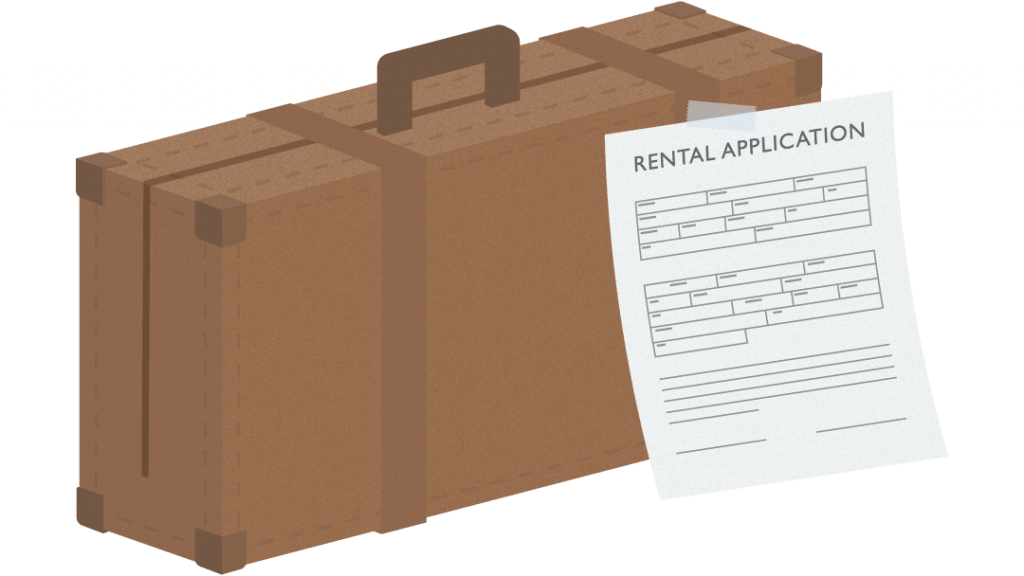
Renting Rulebook
October 5, 2021If you’re looking to rent, there are many things to consider beyond what’s explicitly in the lease.
What’s in a Rent Payment?
When you’re budgeting for rent, make sure you know what a monthly payment covers. Landlords in different areas include specific things in the price of rent. For example, in some cities, landlords are required to provide heat, hot water, and utilities. Elsewhere, you’re required to pay for some or all of these services on top of the rent—as well as arrange for them. Hidden costs like these can tack on as much as a few hundred dollars a month to what you pay for housing, so make sure you’re aware of them as you start to plan.
Renter’s Insurance
You’ll likely need to purchase renter’s insurance when you move into a rental. Even if it’s not required, it’s wise to get a policy in order to protect your possessions. Your landlord’s policy will protect the structure of your rental, but it offers little to no protection for anything that you bring inside. Renter’s insurance is available at a surprisingly affordable price compared to the protection it offers.
If you live with others, most states allow you to take out a joint renter’s insurance policy with one or more roommates or with an unmarried partner. Not all companies offer joint coverage, though, so shop around for something that meets your needs. When you’re ready to sign, make sure that each person’s name is included on the policy so that you’re all guaranteed coverage.
Utility Cost-Cutting
It’s easy to forget to include utilities when you’re thinking about home finance costs. But when you factor in electricity, gas, heat, phones, and other costs, the total can be surprisingly high. A little care and research can be helpful in keeping these costs down:
- Keep air conditioning and heat off when you’re not home, or set them on a timer to regulate how much they’re used
- Shop around for the best phone calling plan, and make the effort to switch plans if it’s going to save you money
- If you have a dishwasher, use it to wash your dishes—it uses over a third less hot water than doing them by hand—but not to dry them, since it uses a lot of electricity
Guest or Tenant?
Having guests stay in your rental is a gray area in terms of leases and legality. Most leases state the maximum time you can have a guest, usually no more than a few weeks. Past that, you’re technically supposed to notify your landlord, and you can be evicted for failing to do so. And if your guest stays for a really long time, he or she may have to fill out a rental application and be responsible for the terms of your lease.
Of course, if your landlord is fairly lax, there’s no reason why you can’t have a guest for as long as you want. Just remember that having a long-term guest will probably cost you money in terms of utilities, wear and tear on the apartment, and groceries.

You may also be tempted to earn some extra money by making your place available through a short-term rental service like Airbnb. Before you do anything, you’ll need to talk to your landlord, check the rules for your city, and even check what your neighbors think of the idea. It’s likely that you won’t be allowed to rent out a space that you yourself are renting. Make sure you follow the rules on this one, as the consequences can be serious.
Rules for Roommates
If you’re living with one or more roommates, it’s common to have some difficulties about how to handle sharing costs. There’s no sure-fire way to avoid this, but there are systems you can set up for taking care of household expenses:
- Keep a jar where everyone puts receipts and bills for what they spend on household items and settle up differences every week or every month
- Have a different person take responsibility for the bills and/or shopping each month
- Break your regular household expenses down into relatively equal groups, and have each person pay for one group
These aren’t the only methods out there, and there may be another that works better for you and your roommates, depending on your financial situations and how careful you want to be about keeping things even. All that really matters is that you find a system that works for everyone and stick to it.
This article has been republished with permission. View the original article: Renting Rulebook.
